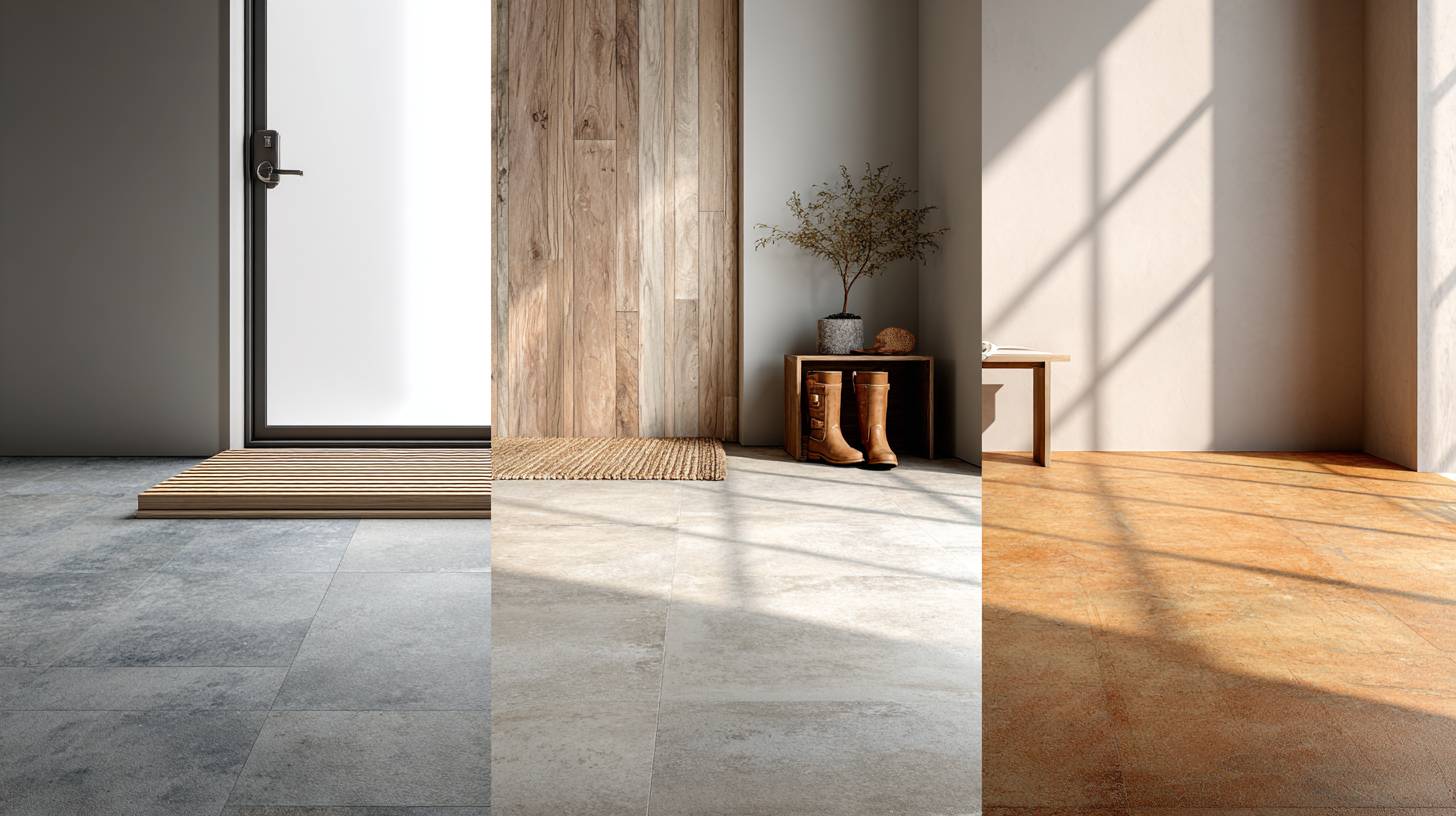Table of Contents [hide]
Choosing the best flooring contractors starts with the climate. Coastal, mountain, and desert homes face different risks, such as water, freeze–thaw, UV, and sand, that should shape materials, prep, and the crew you hire. This guide explains what to look for so your flooring installation lasts and your budget stays on track.
We’ll map smart picks by region, add typical material-and-labor costs, and share a quick hiring checklist you can use after searching “best flooring contractor near me.” Use it to compare quotes, plan prep, and manage the entire process.
Regional Framework: Climate Risks, Subfloors, and Style Signals
Start simple. 1) Identify the dominant risk: bulk water, freeze–thaw, or UV/sand. 2) Check your subfloor: wood subfloor or slab. 3) Match rooms: kitchen floor, living, master bath. 4) Choose finishes you will maintain.
Historical context. Early 20th-century homes favored site-finished hardwood; post-war suburbs saw wall-to-wall carpet surge; the late 1990s introduced laminate flooring; the 2010s popularized luxury vinyl plank. Contractors who recognize era and structure know where squeaks, moisture, and transitions will appear, then price accordingly.
Coastal Regions: Best-Fit Materials & Specs
Salt air, humidity, and tracked sand wear surfaces fast. The plan: moisture management, corrosion-resistant hardware, and tough wear layers. Top flooring services test slabs, seal edges, and detail door thresholds to contain splashes.
Materials: Luxury Vinyl Plank, Porcelain Tile, Engineered Hardwood
Luxury vinyl plank (LVP). Waterproof core and resilient wear layer; typical installed cost $3 to $7/sq ft (material and labor).
Tile flooring (porcelain). Dense, stain/UV-resistant, wide design options; installed $10 to $20/sq ft depending on format and pattern.
Hardwood flooring (engineered). Works above grade with humidity control; installed $8–$15/sq ft. Choose color options and a perfect shade that hides sand scuffs.
Historical note. Coastal regions long used tile and stone for durability; modern homes add LVP for comfort and easier upkeep.
Subfloor & Moisture Game Plan (Wood Subfloor, Concrete “Drab Slab”)
On concrete floors (the “drab slab”): vapor testing, crack repair, self-leveling, and moisture-tolerant primers. Expect $1 to $3/sq ft for moisture mitigation and $1 to $5/sq ft for leveling.
On wood: tighten fasteners, fix squeaks, use sound underlayment, and seal cut edges in wet rooms. Plan baseboard trim and trim for reuse to stretch the budget without hurting the finish.
Costs & Scheduling: Key Cost Factors and Budget Considerations
Flooring costs move with grade (good/better/best), slab vs. wood prep, furniture handling, and demo/haul-away ($0.50 to $2/sq ft). Price of installation rises with stairs ($40 to $100 per step), patterns, large-format layouts, and waterproof membranes.
Compare average prices using line-item bids that list underlayments, transitions, and carpet padding. Allow extra lead time during storm seasons.
Mountain & High-Altitude: Best-Fit Materials & Specs
Cold snaps and dry air add movement; snowmelt adds water at entries. Focus on dimensional stability, warmth, and traction.
Materials: Hardwood, Laminate, Carpet With Dense Padding
- Engineered hardwood floors over radiant heat: installed $8–$15/sq ft.
- Laminate flooring with high abrasion ratings for entries: installed $3–$6/sq ft.
- Carpet installation with dense pad in bedrooms: installed $2–$5/sq ft, including standard carpet padding.
- Tile installation in mudrooms and baths with textured finishes for grip: installed $10–$20/sq ft.
Historical note. Cabin and chalet styles leaned on wood for warmth; today’s engineered planks improve stability over radiant systems.
Prep & Comfort: Radiant Heat, Acclimation, Water-Damage Prevention
Mind acclimation windows and radiant-heat limits; add vestibule mats, entry drip pans, and sealed transitions so meltwater does not wick into edges. These small details prevent water damage and callbacks.
Costs & Logistics: Average Prices, Access, Freeze–Thaw
Plan for thermal underlayments ($0.75 to $2/sq ft), stair noses, and longer cure times. Remote access adds delivery and staging costs. Garages often become cutting stations; weather-protected storage helps the schedule.
Desert & Hot-Dry: Best-Fit Materials & Specs
High heat, intense sun, dust, and big day-night swings favor UV-tough, easy-clean choices that stay cool underfoot.
Materials: Tile and Polished Concrete (Levels of Polishing & Classes of Grinding)
- Porcelain tile flooring with UV-safe glazes: installed $10 to $20/sq ft.
- Concrete floors with polishing: levels of polishing (matte to mirror) and classes of grinding (aggregate exposure) run $3 to $10/sq ft based on passes and sheen.
- Luxury vinyl plank fits conditioned interiors as a softer, quieter alternative: $3 to $7/sq ft installed.
Historical note. Desert homes long used tile and concrete for thermal mass and low maintenance; modern sealers expand finish choices.
Prep & Performance: UV/Sand Movement, Cleaning, and IAQ
Movement joints, expansion gaps, and UV-stable sealants prevent curling and tenting. Add entry mats and routine dust control. Low-VOC adhesives and good ventilation protect indoor air during and after installation.
Costs & Scheduling: Price of Installation and Applicable Taxes
Expect added tooling time for slab prep, saw scoring, and polishing passes. Large formats need premium setting materials and careful layout. Ask for a clear quote showing labor, materials, adders, and applicable taxes.
How to Choose the Best Flooring Contractor Near Me
Turn “best flooring contractors near me” into a checklist: license and insurance, slab moisture and flatness testing, subfloor repair line items, daily cleanup, and a written warranty. Ask for installation photos, similar jobs, and training across materials.
Quotes, Contract Total, Coupons/Referral Codes & Customer-Service Signals
Get apples-to-apples quotes with the contract total broken out: demo, prep, install, trims, haul-away. Be cautious with coupon/referral code pop-ups or “Add Coupon to Cart” offers; confirm they do not hide change-order risk.
Strong customer service shows up as responsive live chat, easy appointment booking, and a seasoned install team with reviews from a community of homeowners. Check payment options (such as a consumer credit card) and whether taxes and fees are clear.
DIY vs. Pro: Simple DIY Tricks vs. Jobs to Hand Off
Helpful simple DIY tricks: clear rooms, remove doors, label baseboards, and patch paint. Hand off slab moisture tests, self-leveling, large-format tile, structural subfloor fixes, polished concrete, and complex patterns to pros offering full installation services.
FAQ: Timelines, Financing, Warranties (Keep It Quick)
How long does it take?
One room often finishes in 1 to 3 days; whole-home projects vary by scope and cure times.
How do I compare costs?
Focus on key cost factors, such as prep, patterns, stairs, membranes, plus the price of installation versus materials.
Can I finance?
Some pros offer payments via a consumer credit card; read the terms and confirm taxes and fees.
Does polishing concrete change costs?
Yes. More passes and deeper grinding raise labor; separate floor scope from any concrete wall cost estimates.
Compare Flooring Services and Start Your Project With Confidence
Ready to hire the best flooring contractors for your climate? Mr. Remodel connects you with vetted local pros for flooring services, clear bids, and reliable schedules. Compare quotes, ask questions, and move forward with confidence—no pressure, just the information you need.





